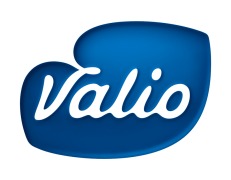Are plant-based alternatives healthier than meat?
23 Sep 2019Diets high in red and processed meat have been linked to a range of health problems, leading many consumers to choose more plant-based alternatives. But are fake meat products like burgers, sausages and nuggets really a healthier option?
A new generation of plant-based meat alternatives has entered the market, with the aim of mimicking meat as closely as possible. Their manufacturers often tout them as a way of speeding the transition away from high levels of meat consumption, for the sake of the environment and also for human health. However, a recent study in the Journal of the American Medical Association cautions against extrapolating the well-documented positive health effects of a vegetarian diet to these meat analogue products.

When compared to a standard meat-based burger patty, vegetarian substitutes do tend to be lower in total and saturated fat, but some of the world’s most successful products in the category, like the Beyond Burger and Impossible Burger, are also higher in sodium. In terms of calories and protein, they are comparable to their meat counterparts. However, no one recommends that burger patties should be the sole protein source in anyone’s diet – whether they are made from meat or plants.
As the authors of the JAMA article suggest, it is important to consider dietary context. That is, most people do not replace meat at every meal with plant-based alternatives. Instead, they may consume a vegetarian burger patty instead of an ordinary burger patty, but are unlikely to be replacing all meat, chicken and fish with vegetarian burger patties or sausages. What is more, traditional alternatives, such as tempeh, tofu and seitan could also be used as meat alternatives in a vegetarian diet, and nutritious protein sources like nuts, seeds, legumes and pulses are often consumed more regularly as part of a plant-based diet. On the other hand, if fake meat products are being used in the place of beans and lentils, they are likely to lead to lower overall diet quality.
Recently, plant-based meat analogues also have come under fire for their long ingredient lists. Some had assumed that meat alternatives were exempt from the clean label trend, as they tended to contain a lot of ingredients, perhaps including thickeners, preservatives, flavourings, oils or hydrocolloids that the most consumers would not recognise. The theory was that consumers of such products tended to place more importance on animal welfare than on natural ingredients. However, pulses and recognisable vegetable ingredients like pea protein, kale, spinach and beans are gaining in popularity, according to Mintel.
The market researcher has found that taste is still the top priority for consumers of meat alternatives, but health is also an important purchase driver, particularly among younger consumers of plant-based proteins.
Responding to growing demand, suppliers of alternative proteins, including Roquette, Cargill and Valio, have been investing in new production lines and facilities. According to Eurostat figures, the land area used to grow pulses in the European Union increased by about 65% from 2013 to 2015.
There is no question that the move toward meat alternatives has become a major food trend. But whatever reasons consumers give for their choices, manufacturers must bear in mind other macrotrends in the industry if they aim to stay relevant, including those for clean label ingredients, reduced salt and saturated fat.
Related news

Plastic packaging reduction requires industry rethink
6 Jan 2023
The food and beverage sector is calling for industry-wide collaboration and business model updates to reduce the environmental impact of plastic packaging.
Read more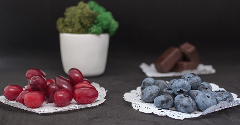
Misleading nutrition claims mask true sugar levels in baby food
5 Jan 2023
Some baby and toddler food and drink products, sweetened with fruit concentrate, contain up to four teaspoons of sugar per serving yet are marketed as having ‘no added sugar’, according to a survey by Action on Sugar.
Read more
Asian beverage brands deal with rising costs
4 Jan 2023
Decreasing bottle sizes or increasing prices? Asian beverage brands are finding “creative approaches” to manage rising costs, according to industry analysts.
Read more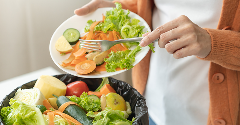
Preserving the freshness of food to fight waste
3 Jan 2023
Several companies are producing products that absorb ethylene, the hormone that causes food to ripen, in attempt to reduce food waste.
Read more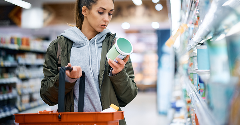
Value-seeking US consumers cut back on food spending
2 Jan 2023
Cheaper items, smaller sizes, and shorter grocery lists: inflationary effects coupled with a global long-term recession are set to continue shaping food spending habits, according to a recent Rabobank report.
Read more
Opportunities grow for lower-caffeine coffee
23 Dec 2022
Many consumers want the mental focus of caffeine without the jitters, prompting a wave of product development such as “half caffeine” ground coffee or ready-to-drink (RTD) cold brew blended with relaxing botanicals.
Read more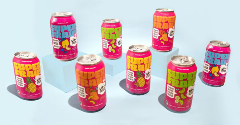
Superfrau upcycles liquid whey for energy drinks
22 Dec 2022
US company Superfrau turns surplus whey into sustainable, upcycled-certified dairy products for the recovery drinks market.
Read more
Malaysian brand Nanka brings jackfruit range to Europe
21 Dec 2022
Malaysian brand Nanka is expanding to new Asian and European markets with its fast and ready-to-eat plant-based products based on jackfruit.
Read more
Is the UK on target to meet its 2025 Plastics Pact?
20 Dec 2022
Major food industry players, including Arla, Kerry, PepsiCo and TerraCycle, have signed the UK’s voluntary Plastic Pact to reduce plastic from the supply chain – but are they on track to meet their targets?
Read more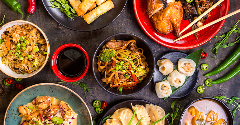
Chinese food brand wants to give customers ‘the full experience’
16 Dec 2022
Food brand Xiao Chi Jie is revamping Chinese cuisine for the modern American consumer. The Washington-based company sells regional Chinese specialties like soup dumplings, noodle kits, and barbeque skewers direct-to-consumer in the US.
Read more


